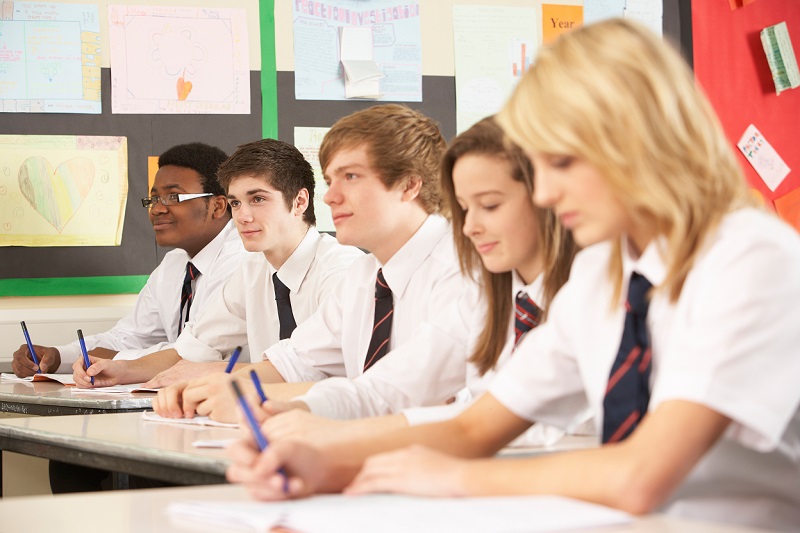We all know that learning a language requires perseverance over time, so helping students to develop this is key to their success.
My years in teaching have been very varied. I’ve taught languages in primary and secondary schools and taught English and PE as well. Completing the gold Duke of Edinburgh award and returning to help with the expeditions as a young leader developed my strong belief in the wider aspects of education that prepares young people for life. Stickability and flexibility seem key!
During my ten years as an Advanced Skills Teacher, I visited many different language departments helping teachers with the development of schemes of work which helped me to refine my thoughts about planning across the curriculum and planning over time. I prefer to plan sequences of learning, rather than individual lessons. I feel it is important to have an overview of how we are developing learning dispositions as well as deeper knowledge and understanding of the new vocabulary and grammar within new contexts. Not only does this prepare students well for the start of their GCSE studies, but as they master how to learn effectively, their respect of other cultures and societies grows. I hope that some of the strategies discussed here help your students.
Key strategies to focus on at KS3
1. Build on reading and listening
Reading and listening strategies taught in KS2 should continue to be developed at KS3, gradually introducing more advanced techniques and longer passages. Remind students they don’t have to understand every single word to make sense of a passage, and that they can use context and expectation to help them. Choose interesting and relevant passages with different types of language e.g. formal and informal, persuasive etc. A focus of Echt has been to include relevant, interesting texts; for example, on healthy living, online safety, technology, avoiding waste, and the Austrian youth parliament. Don’t be afraid to pause a sound file (or stop it and come back to the rest the next lesson) or bring the class back to whole class learning if they are working on a reading passage in groups if you observe that something is tricky and needs explaining.
2. Focus on using different tenses together
Students should be encouraged to think about the purpose of this, namely that almost all conversations switch between time frames and mastering the grammar needed leads to natural speaking and writing! A lesson on using sequencers zuerst, dann, danach and time marker words letzten Sommer, nächstes Jahr etc. correctly helps so much with this. This of course needs practise as the nouns needed have different genders! Letzten Sonntag, letzte Woche, letztes Jahr … Again, a mention of the benefits of perseverance in training for a sport or music is worthwhile as students aim at increased accuracy and fluency.
3. Encourage questions and empathy
A favourite saying of mine in lessons is ‘’It is ok to not know all the answers!’’ During the uncertain times we have all experienced during the past year has any scientist or politician in any country known all the answers? The ability to react to the unpredictable, understand different perspectives, to compare and contrast – to listen to others and feel confident to add their own viewpoint, to debate.
4. Strategies for structuring writing
Teach strategies over time for structuring writing. This could include using programmes (e.g. Wordle) to gather relevant vocabulary together, assembling thoughts for drafting/redrafting and checking work, using intensifiers and varying language. Students are used to doing this in English and other subjects, so we should build on this! In my experience the more they understand how learning links together the better prepared they are for GCSE study.
5. Browse the internet
Teaching students to be specific with search engine questions will pay dividends! It will lead to better use of websites from other countries and increase the students’ exposure to the language being learnt. As they search, students are analysing what they want to read and hear, using many of the skills very naturally that we want them to develop before their GCSE study, contextualising, deducing meaning, inferring, learning to compare and contrast etc.
6. Make links to other subjects
During plenaries I have sometimes asked students different types of questions. How has what we have covered today linked to what you have been learning in other subjects? Can you use the skills you have practised today in other aspects of your studies? Has anything helped you develop your understanding of history/geography/science? These are just examples. Students enjoy working things out! Reasoning, deducing meaning, inferring … I often hear ‘’I figured out that….’’ which really pleases me!
Listening to the language development of younger children in my family and friendship groups has reinforced what I have always believed. Children in KS2 who can think carefully, use their brains well to memorise new language, persevere and link their learning across subject disciplines in a purposeful way thrive and students in KS3 and KS4 need to build on this systematically when learning new languages.
Liz has taught languages in both primary and secondary schools for over 30 years and is currently working in teacher training. She has been a member of ALL for many years. In September she will be President Elect and President for two years in 2022.
